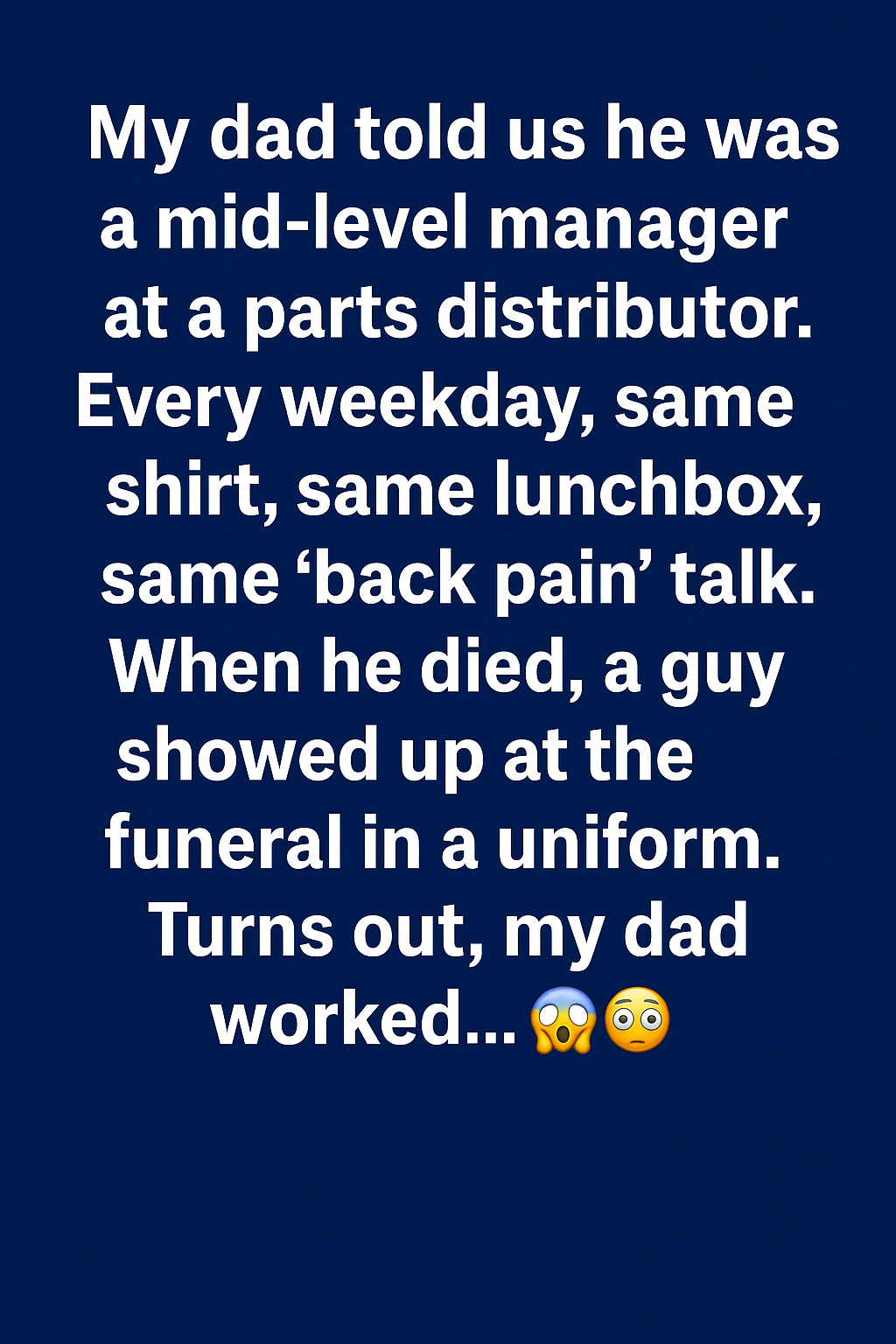My dad always told us he was a mid-level manager at a parts distributor. Every weekday looked the same—same shirt, same lunchbox, same stories about “back pain from the office.” We never questioned it. But at his funeral, a man in uniform approached us, and everything we thought we knew shifted. He revealed that Dad wasn’t a manager at all—he...
